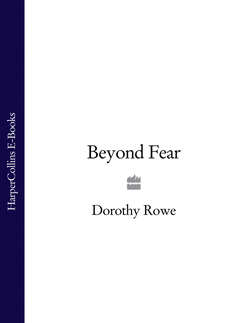Читать книгу Beyond Fear - Paula Nicolson, Dorothy Rowe, Dorothy Rowe - Страница 14
A Choice of Defences
ОглавлениеAs our meaning structure establishes itself it builds defences so as to hold itself together. We create ways of conforming to society’s demands while at the same time resisting such demands. If your parents sent to you to a school where each child had to wear an identical uniform you conformed but you defended yourself by wearing your skirt a fraction shorter than regulation, or you battered your hat and wore it at a rakish tilt. If you were expected to sit quietly through long, boring church services you defended yourself by escaping into fantasy or developing private games. When people criticized you you developed a nonchalant air, or a sudden and complete deafness, or a quick wit which stung your critics and amused onlookers. As an introvert you developed methods of organization and control which, when practised, gave you a sense of achievement. As an extravert you developed your charm and gathered around you a host of friends and acquaintances.
However, defences such as these require considerable self-confidence to create and use. The less self-confidence we have the more vulnerable we are to the encroachments other people make on us. The more vulnerable we are the more desperate are the defences we need. If we lose all self-confidence and we come to feel that we are irredeemably bad and utterly valueless, we have to resort to the most desperate of defences, those behaviours which psychiatrists call the mental illnesses.
Whatever defences we choose, these defences have both to ward off those encroachments which threaten annihilation and to contain our fear. To create an effective defence we need to know just what we are defending against. An army commander collects all possible information about his enemy before he decides just how he will defend his position. Similarly, we need to be clear about the nature of the threat to us before we construct a defence. However, sometimes the threat is so frightening that we cannot bring ourselves to acknowledge it. For instance, some people cannot bear to acknowledge that those they are closest to and on whom they depend are a major danger to them. More frequently, the threat that cannot be acknowledged is the fear that they feel. Many of us find fear to be too fearful to acknowledge, and so one of the defences we can choose is to deny that we are afraid.
